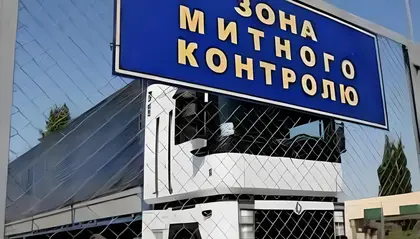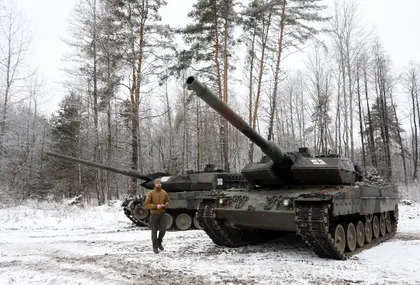Life in the Ukraine’s east and southeast contrasts sharply with life in the western part of the country. The densely populated Kharkiv and Donbas regions have now given up significant numbers of inhabitants who have flocked westward.
Ukraine's western border with the EU is struggling to deal with the increase in traffic. Bus passengers must wait for up to 10 hours to show their passports and travel in or out of Ukraine. Train passengers cross the border somewhat more quickly, but truck drivers wait longer than anybody else.
JOIN US ON TELEGRAM
Follow our coverage of the war on the @Kyivpost_official.
Many trucks traveling into Ukraine are carrying humanitarian aid, building materials, windows, and everything else needed to rebuild swathes of devastated territory. At the same time, new cars, clothes, and even Spanish jamon and Norwegian salmon are being imported to Ukraine for sale. In large parts of the country, life goes on as usual, and international brand stores continue to operate and present new collections.
Sometimes, Ukrainian businesspeople try to use the war to make more money or simply cover losses associated with the war. They try to import clothes from luxury brands under the guise of humanitarian aid for war victims. They try to negotiate with customs officials to bring in more and pay less. Sometimes they succeed, sometimes they don't. Judging by the fact that heads of customs stations on the western border are fired every year, one can assume that a great many cargoes are imported into Ukraine without full payment of customs duties.

Ukraine’s Navy Shoots Down Russian Missile – A New Air Defense Strategy?
Since February 2022, the number of customs officials arrested for corruption has increased dramatically. At the same time, state revenues from customs fees have also increased. Traders trying to save on customs payments run a much greater risk than before.
One of the most curious cases of goods being imported under the guise of humanitarian aid came to light at the end of last year. A truck was checked at the customs post in Odesa. According to the documents presented, the truck was carrying humanitarian cargo – 22 tons of frozen shrimp from Ecuador for a Ukrainian charitable organization that helps victims of the war.
Customs officers contacted the leadership of the charitable organization mentioned in the documents. The employees of the organization were surprised when they heard about the tons of frozen shrimp that appeared to be heading their way. They did not have any industrial freezers and were engaged in a completely different type of assistance.
During a search of the truck’s cab, customs officers found another package of accompanying documents for the shrimp – this time the real ones. According to these documents, the shrimp were imported for a commercial structure that sells frozen seafood. As a result, 22 tons of shrimp were confiscated in favor of the State.
The fate of the cargo of shrimp is not known, unlike the fate of previously confiscated jackets and suits from Brioni, Versace, Chanel, Armani, Louis Vuitton, Prada, and Hugo Boss. According to a statement from Odesa Customs, those products – imported under the guise of humanitarian aid - were handed over to the military personnel of the 122nd Territorial Defense Brigade.
Curiously, no one saw the fighters of this brigade in Hugo Boss jackets. Later, Odesa Customs amended its statement, adding that the illegally imported products were cheap fakes. This perhaps remains a mystery to be investigated later, after the war. But at least we have some official statements from Customs.
It's true that, nowadays, a lot depends on customs officials. It depends on them whether residents of cities and towns near the front, as well as those far from it, receive new German windows before the onset of freezing temperatures; whether residents of the Kherson and Kharkiv regions receive humanitarian aid and medicine; and whether Izyum receives equipment to restore normal mobile communications. All of this depends on the customs systems and its officials.
Surely, every foreign truck driver reaching Izyum will remember the trip for the rest of their lives, and will bring home some of the beautiful colored magnets as souvenirs from the ruined city.
The views expressed are the author’s and not necessarily of Kyiv Post.
You can also highlight the text and press Ctrl + Enter










